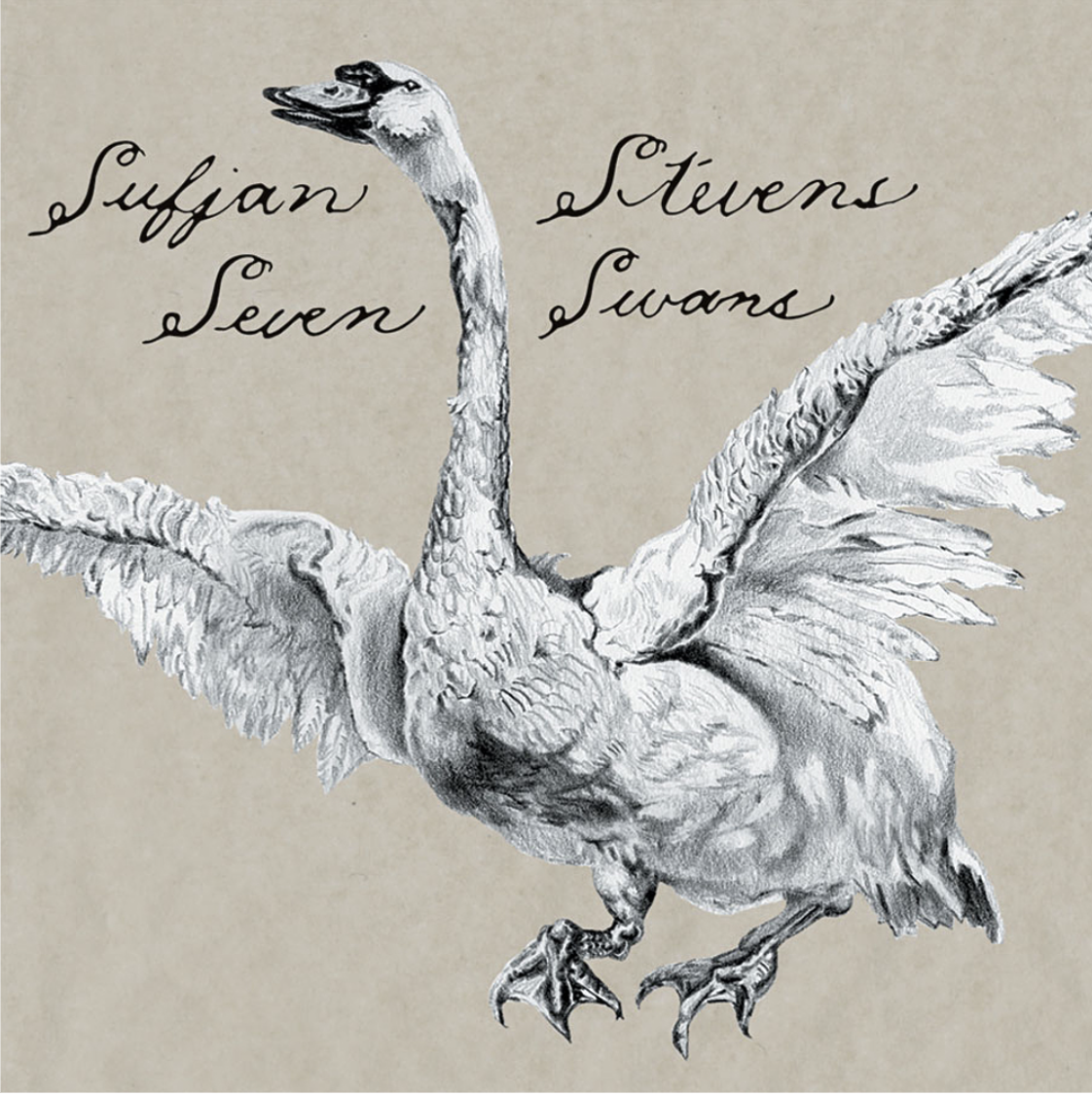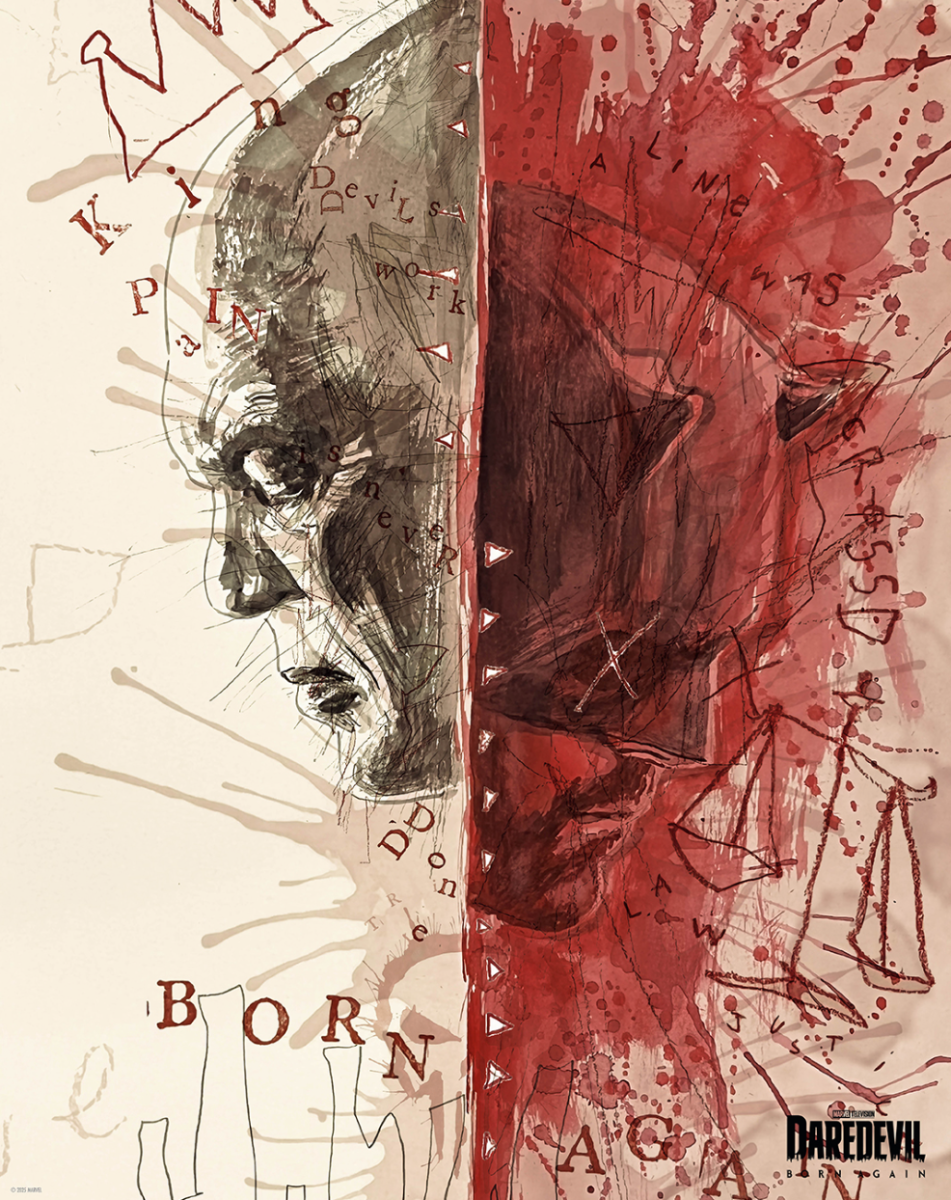Last year, Sufjan Stevens released his 13th studio album. In 2017, he released his song, “Mysteries of Love,” for the movie “Call Me By Your Name,” receiving several major award nominations and performing the song at the 2018 Academy Awards. Even if someone isn’t a die-hard fan, they’ve likely run into his music at some point.
But in March of 2004, Stevens had just unveiled his fourth studio album, “Seven Swans.” Twenty years later, on June 21, Stevens released the first digital deluxe edition of “Seven Swans.”
“Seven Swans” came on the heels of his successful 2003 album, “Michigan.” Sandwiched between that earlier album and the 2005 record “Illinois,” the only two albums launched as part of his ambitious project to create an album for each state, “Seven Swans” had big shoes to fill.
Stevens loves a concept album, and “Seven Swans” is no exception. Revolving around Stevens’ relationship to his Christian faith, the album is mostly acoustic, but tastefully includes a mellow electric guitar in some of the songs. Some of his other albums are show-boaty, ripe with horns and large background choruses. “Seven Swans” stands out with its quiet storytelling.
“The Transfiguration,” the end track of the original album, is a retelling of the Transfiguration of Jesus. It’s a prime example of Stevens’ ability to create musical stories that are instrumentally simple yet beautiful.
In his next album, Stevens would re-use the melody in “The Transfiguration” in his song “Chicago.” Stevens’ musical callbacks provide a thread of connection between his albums, keeping them familiar even as the themes and sounds evolve. His music has been, and continues to be, distinctly his.
Along with the original tracklist, the deluxe edition of “Seven Swans” includes two bonus tracks, “I Went Dancing With My Sister” and “Waste of What Your Kids Won’t Have.” Both songs were released in 2004 on physical deluxe editions of the album. This is the first time they’ve been released digitally.
“I Went Dancing With My Sister” is upbeat, with lyrics set against a steady backdrop of acoustics. The banjo, thankfully, makes a reappearance. It’s a playful and charming instrument that compliments Stevens’ witty lyrics. “I Went Dancing With My Sister” is a fond remembrance of a carefree youth, tinged with a bit of darkness. The melody is airy and sweet as Stevens sings, “Break a glass against a table / Break a promise if you’re, if you’re able.”
Contrastingly, “Waste of What Your Kids Won’t Have” is far more subdued and outwardly dark. It opens with a heavy acoustic guitar that’s soon joined by Stevens’ mournful voice. He sings of visions of violence. The theme of faith is brought back as he sings, “So the Father, Ghost, and Lord/Took the revelation stored.”
20 years later, “Seven Swans” still stands out. Stevens’ witty lyricism hasn’t dulled in the 20 years since the initial release of the album. His later albums would see a wide range of musical exploration. This early album is a raw bearing of Stevens’ relationship with his faith, with no frills.










